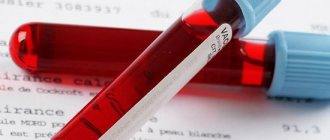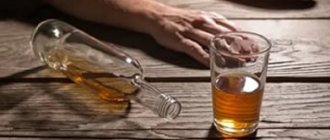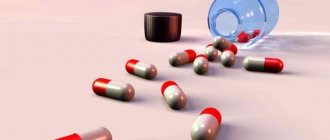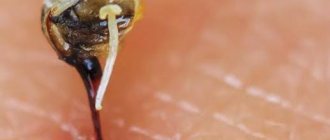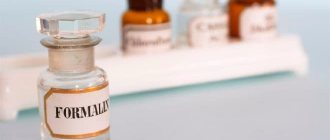It is impossible to quickly relieve the symptoms of alcohol poisoning in a chronic alcoholic. His metabolic rate is much lower than that of a healthy person. Therefore, it will have to be treated for a long time and not at home, but in a hospital. And this is only the first stage. In the future, such a patient will need to follow a diet, take medications, and do everything possible to never touch a glass again.
If we are talking about a one-time case of poisoning, you can get out of the unpleasant state within a day. The timing is arbitrary, since symptoms are of great importance. The worse the patient feels, the more difficult it is to treat him.
Symptoms of alcohol poisoning
The method of treating alcohol intoxication depends on the severity of the poisoning. The more pronounced the symptoms are, the higher the amount of alcohol in the blood. The unit of measurement is ppm - 1/10 percent:
- 0,3-1,0 ‰: euphoria, increased self-confidence, decreased concentration, and the appearance of minor speech impairments.
- 1,0-1,5 ‰: decreased reactions to external stimuli, slowed perception, the appearance of psychomotor agitation or lethargy, impaired coordination of movements (shaky gait).
- 1,5-2,2 ‰: disorientation in space, severe dizziness, double vision, severe speech impairment.
- 2,2-3,0 ‰: loss of the ability to stand and move independently, lack of response to external stimuli, inability to control physiological functions (urinary incontinence).
- 3,0-4,0 ‰: serious condition, lack of reflexes, impaired respiratory and circulatory functions, high probability of developing coma.
- 4.0 ‰ or more: paralysis of the respiratory center, death.
Severe alcohol intoxication can only be relieved in a medical facility: this condition requires immediate medical intervention. In other cases, attempts can be made to improve the patient's condition at home.
Does your husband drink constantly?
We know what to do with it! Free, anonymous consultation:
Diagnostics
Diagnostic measures for alcohol intoxication or taking surrogate products include:
- collecting medical history data;
- studying the clinical picture of poisoning;
- conducting a series of additional studies, including chemical and toxicological analysis of the received liquid and other biological material.
In typical cases of intoxication, making the correct diagnosis is not difficult. It should be taken into account that alcohol poisoning can mask or provoke the development of comatose states of a different nature of origin.
Particular difficulties arise when a somatic or drug-induced coma develops against the background of alcohol intoxication, for example, with hypoglycemia. The combined use of alcohol and barbiturates also leads to serious consequences.
In these cases, prompt chemical analysis of biological fluids of the body helps to correctly diagnose the cause of the patient’s comatose state and provide timely assistance.
A video from an Aston Martin user explains the effects of alcohol poisoning on the body.
How to prevent the development of alcohol intoxication?
To prevent alcohol poisoning, you can resort to one of several methods on the eve of the upcoming feast:
- take sorbents before drinking alcohol (1 tablet of activated carbon per 10 kg of body weight) and continue to do this while drinking alcohol;
- eat a bowl of milk porridge or drink milk shortly before drinking alcohol;
- Before the feast, eat a piece of bread with lard or butter.
The main condition is not to drink alcohol on an empty stomach . In addition, it is important to drink a lot of water, which ensures the restoration of water balance and enhanced elimination of toxins.
Degrees of intoxication
Drinking alcoholic beverages contributes to a state of intoxication, in which the following symptoms are noted:
- inability to exercise control over one's actions;
- dilated pupils;
- inappropriate behavior compared to when a person is sober.
There are three degrees of intoxication:
- light;
- average;
- heavy.
With the first of them, the alcohol content in the blood does not reach 2%. Human behavior is even more adequate with a feeling of euphoria, redness of the epidermis, dilation of the pupils, and the appearance of calls for frequent urination. If you stop drinking alcohol, this condition quickly passes.
At an average level, the blood alcohol content is already 2-3%. A person’s control over his or her condition is significantly reduced, walking and movements become imprecise and uneven, the tongue begins to slur, and the desire to commit rash acts arises. However, when he is put to bed, he quickly falls asleep. After waking up, a hangover syndrome may occur, accompanied by a headache, weakness with nausea and vomiting, and a feeling of thirst.
A severe form of intoxication is accompanied by serious alcohol intoxication of the body. The amount of alcohol in the blood exceeds 3%. This can lead to cardiac arrest, temporary deafness and respiratory arrest. The person may fall into a coma.
How to help cope with alcohol poisoning?
If symptoms of intoxication are severe, you need to call an ambulance. It is necessary to provide access to fresh air - take the person outside or open a window, loosen a tight collar.
Then you need to perform gastric lavage. To do this, dilute 2 tbsp in a liter of warm water. l. baking soda, offer to drink. This will induce vomiting and clear the remaining alcohol from the stomach. Otherwise, the absorption of alcohol in the stomach will continue, and the patient’s condition will worsen. You can also use clean water, without soda, for rinsing. This procedure should be repeated several times.
If a person has lost consciousness, he should not be placed on his back - lay him on his side to prevent vomit from entering the respiratory tract. You can bring consciousness to life with the help of ammonia or vinegar by giving the drinker a cotton swab moistened with a solution of one or another to sniff. Place a cold compress on the forehead, and mustard plasters on the hands, feet, back of the head, and calves.
Doctors will provide further assistance to the victim. If such episodes recur from time to time, the patient's relatives should understand that measures need to be taken to treat alcohol dependence.
Read about treatment methods for alcoholism here.
General recommendations
You can treat alcohol poisoning at home only with mild to moderate degrees of intoxication. If you feel sick in the morning, this is good - the body is trying to cleanse itself of toxic compounds. Let the person vomit, after which relief comes.
It is necessary to provide the victim with a constant flow of fresh air in order to eliminate oxygen starvation of the brain and start metabolic processes. If a person feels tolerable, you can go for a walk.
You need to eat, but heavy foods should be avoided so as not to overload the gastrointestinal tract. The best food for food poisoning is chicken broth, pureed vegetable purees, and porridge. To avoid dehydration, you need to constantly replenish your fluid supply: drink mineral water, decoctions and infusions of herbs, fruit drinks, kombucha.
It is not recommended to drink strong coffee or smoke. Nicotine will aggravate the poisoning and worsen the condition.
Removing alcohol intoxication with medications
Drugs that relieve alcohol intoxication are divided into several groups:
Enterosorbents
These drugs absorb toxic substances, bind them and remove them from the body naturally. It is worth remembering that alcohol is absorbed very quickly, so it is preferable to take such medications in advance. However, even if the toxic effects of alcohol have begun, they will help alleviate the condition. The list of products with an absorbent effect is wide and includes not only the usual activated carbon, but also the following drugs:
Enterosgel;- Carbolong;
- Ultra-adsorb;
- Polyphepan;
- Enterodesis;
- Filtrum;
- Smecta;
- Neosmectin;
- Rekitsen-RD;
- Algisorb et al.
Symptomatic remedies
Drugs with different mechanisms of action will help relieve the symptoms of alcohol intoxication:
- Biotredin is a nootropic drug, a tissue metabolism regulator. It helps normalize metabolism, increase efficiency and mental activity, relieve hangover symptoms, and reduce psycho-emotional stress. It has a rapid effect and does not accumulate in body tissues.
- Zorex – contains unithiol (“universal antidote”), due to which it binds toxins and alcohol breakdown products. Enhances biochemical reactions, promotes the removal of toxic substances from the liver.
- Limontar - the effect is due to the content of citric and succinic acids:
- normalizes metabolism;
- has antioxidant properties;
- reduces the negative effects of toxic substances;
- increases appetite;
- stimulates the physiological activity of organs and systems;
- enhances performance.
- Metadoxyl is a derivative of vitamin B6. Accelerates the elimination of ethanol breakdown products, normalizes the detoxification function of the liver, and helps relieve the unpleasant symptoms of withdrawal syndrome. Available in two forms - tablets and solution for injection.
- Yantavit is a dietary supplement based on succinic acid and glucose. Effects - strengthening defenses, normalizing energy metabolism, restorative effects, relieving hangovers, overcoming cravings for alcohol. However, the drug is not suitable as an independent remedy for alcohol addiction. Treatment must be comprehensive.
- Glycine is a drug with antitoxic, antioxidant and nootropic effects. Allows you to normalize the rhythms of sleep and wakefulness, reduce aggression, increase mental activity, relieve tension and stress.
- Alka-Seltzer - contains sodium bicarbonate, acetylsalicylic and citric acids. Relieves withdrawal symptoms such as muscle and head pain.
Other medications are also used in the symptomatic treatment of alcohol intoxication. Nonsteroidal anti-inflammatory drugs or antispasmodics may help combat headaches; remedies to reduce the production of hydrochloric acid eliminate stomach pain or heartburn. Diuretics stimulate the excretion of harmful substances in the urine. Before using these medications, you should consult a specialist .
It is important to remember that the removal of alcohol intoxication by medication should be carried out by doctors.
Consequences
Regular consumption of alcohol affects internal organs in the following ways:
- Liver. With intoxication in a chronic form, the development of fatty hepatosis and hepatitis is observed. If treatment is untimely, the latter progresses to cirrhosis, after which the transformation of organ cells enters an irreversible phase.
- Gastrointestinal tract. Under the influence of alcohol, a complication occurs in the form of necrosis of the cells of the mucous membranes, which interferes with the normal process of absorption of useful substances. The result is hypovitaminosis. Also, alcohol breakdown products contribute to the development of peptic ulcers and acute pancreatitis.
- Heart. Chronic alcohol poisoning leads to changes in the structure of the heart muscle. Fatty transformation leads to a decrease in contractile function. From the cardiovascular system, there is an increased risk of heart attack, hypertension, sclerotic changes, ischemia, and cardiac arrest.
- Brain. Long-term alcohol consumption leads to encephalopathy, which ends in the death of organ cells. Another consequence is alcoholic epilepsy and dementia.
- Psyche. Mental disorders manifest themselves in the form of delirium tremens, hallucinosis, delusions of jealousy, and delusional psychosis. In such a state, a person becomes dangerous to others and can harm himself.
Folk ways to combat alcohol poisoning
At home, you can combine traditional recipes with taking medications.
- The most effective and simple recipe is strong black tea . After preliminary cleansing of the stomach, it is taken sweetened with honey.
- A decoction of chicory roots is an equally effective remedy that must be taken 1 tbsp. l. four times a day.
- You can eliminate nausea with water with lemon or green tea with mint and lemon balm. The latter are especially good for nervous excitement and insomnia, as they have a calming effect.
- Celery root juice in the amount of 1 tsp. Three times a day will bring the body back to normal faster.
- Mineral water (at least 2 liters per day) is an excellent way to restore water-salt balance, compensate for the deficiency of some microelements and restore vigor.
- Rosehip infusion not only normalizes the condition, but also relieves the deficiency of ascorbic acid, which is destroyed and excreted under the influence of alcoholic beverages.
In what situations should a doctor be called to your home?
The participation of a narcologist may be necessary if independent attempts to alleviate the condition have not led to success.
A doctor is needed if:
- deterioration of health;
- the emergence of new complaints and the strengthening of existing ones;
- taking surrogate alcoholic drinks;
Restoring fluid balance
For recovery, fluid balance plays an important role - alcohol has a strong diuretic effect, a lot of water is removed from the body through vomiting and sweat. Alkaline water successfully restores the fluid balance; adding fresh lemon juice to the water helps.
We get rid of dehydration with special formulations that contain sodium and potassium salts, a number of substances that relieve dehydration and restore the salt composition of the blood. Compositions of this type include Regidron, Hydrovit. For patient rehabilitation, up to 10 ml is used. aqueous solution per 1 kilogram of the patient's weight. The dissolved drug is drunk over 24 hours. To prepare such a solution at home, you should take 4 tablespoons of sugar, 0.5 teaspoon of salt and 0.5 tsp per 1 liter of clean boiled water. soda
Prevention
The most effective way of prevention is to completely stop drinking alcohol. However, unfortunately, it is rarely feasible in practice. Therefore, you need to adhere to the following recommendations:
- do not drink alcohol on an empty stomach;
- prefer drinks of the same strength;
- know your limit, which should not be exceeded.
In order to avoid a hangover, you must follow these rules:
- during the feast, consume a large amount of carbohydrate and meat dishes;
- Before you start drinking alcohol, you need to eat a hearty meal;
- take vitamins;
- before drinking alcohol, drink a glass of milk;
- Before the start of the feast, take activated charcoal.

